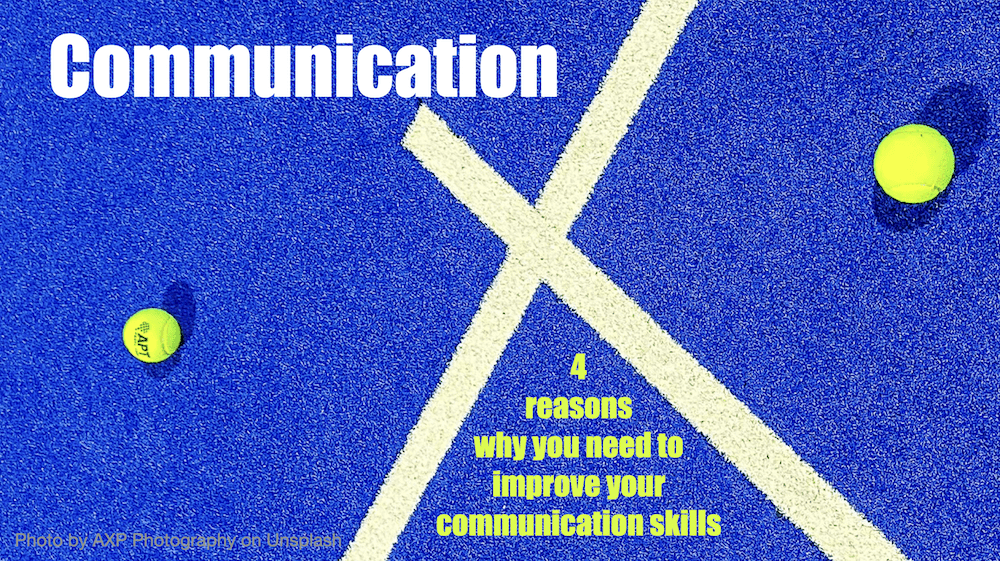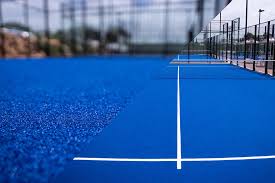As some of you will know, I’m a keen padel player and have been playing the sport for a long time. That said, my understanding of the subtleties of the sport have only really emerged in the last decade. And I’ve been fascinated by the parallels / extrapolations one can make from the padel court to life in general or at the workplace. At the pinnacle is the notion of communication. Communication is the lifeblood of any organisation (including a pair of padel players playing doubles). Communication, at a higher and entirely critical level, is the sodder of any relationship. Communication is that which binds us, allows us to learn, build and protect us. It is the essential ingredient for fostering collective intelligence. And at a more prosaic level, it’s that which drives performance and unity on a padel court.
I read recently the book by Sarah Rozenthuler, “Now We’re Talking,” published by Pearson. It was a great reminder of the importance of being able to engage in meaningful discussion — or dialogue as she stresses. I should qualify that the sport of padel is not profound. It’s really more about joy and exercise. One should not expect to discuss Voltaire, Cicero or Esther Perrel (who’s that you ask?) with your fellow padelers. Yet, the conversation around communication can quickly become more existential. And there are some important life lessons that can be extracted from how you play and interact with your partner and opponents. Sparked by a couple of situations I’ve experienced over the last few weeks, I feel the urge to insist on the need for better communication on the padel court.
1/ If you don’t communicate, you won’t get good
As I was prepping for a recent match with my partner, he told me that he didn’t like to talk while playing. It would put him off, he said, to hear me speaking while he’s hitting. This statement told me that we were bound to have a rather difficult — if not frosty — experience on the court. I tried to suggest that telling him what the opposition was doing when he was dealing with a lob or had his back turned, would be helpful for him. It’s about allowing him to focus on the ball and give him insight as to where and how he might hit the ball back. For me, it’s an act of partnership. For him, it was a distraction. Obviously, he was not about to start telling me what the opposition was doing was when I was handling the lob or had my back to the net. In such circumstances, we were not only not helping one another, we were just two independent individuals* playing the ball as we saw it individually. That is no recipe for getting good. It was certainly no recipe for performing well together. We were properly thrashed. If you don’t communicate, you won’t get good. At the end of the match, sadly my partner wasn’t able to look me in the eye.
“Communication is at least as important as, if not more important than the technical aspects of the game.”
–Nikhil Mohindra, GB Men’s Team #4NO.2 Panoramic Padel Orange
2/ If you don’t communicate, you don’t connect
Talking during a game, in between points for example, can irritate. I get that. I would point out that, more frequently, it is more irritating for the opposition. “What are they talking about?” or “Why are they wasting time?” they might ask themselves. But talking during the point and, especially, between points is about connecting with your partner. This can start with your partner signalling to you behind his back in which direction to serve (i.e. line, body or glass). Then you need to iron what calls you want to have when you’re striking the ball. Of course, there’s also the classic: mine/yours (to decide who’s to hit the ball). And then between points, there’s a chance to evaluate what happened in the last point. What did we do well or wrong? What needs improvement? What are the opposition up to? Should we change any tactics? Because there’s a time limit (20 seconds) as to how long you spend between points, you need to think of these quick exchanges as part of a longer conversation. And, when it’s time to change sides, you can spend a full 90 seconds (per the regulations of the tournament), developing the conversation. That can include collecting yourself and/or taking a step back.
3/ If you don’t communicate, you’re not building trust
In another game I played where my partner got overwhelmed with the idea of talking, so we just shut down all communication. This situation highlights my own opportunity for growth and improvement. Before the game began, I started to engage in the conversation around on-court communication. Upon giving my “spiel,” with my routine of calling devices, I saw that my partner’s eyes started to glaze over. I had gone from zero to too much. My lesson learned was to be more empathic with my partner’s status and context. In this instance, my partner was not communicative in the first place. I should have known better than to go too much, too fast. He became deadset with “just getting on with it,” with the implicit understanding that communication on the court was not to happen. Just because we’re two capable athletes will not beat even a lesser team that works better as a team. We inevitably ended up with mixed wires, (avoidably) terrible shot-making and a complete lack of solidarity. That was clearly not beneficial for team spirit. But there’s another absolutely vital point to calling out what the opposition is doing while your partner is preparing to strike an overhead. While your partner is eyeing the ball floating above, your role is to keep your eyes on the opposing pair’s movements. You call out what you see them doing and trust your partner to do what’s best in the moment. In some cases, for the more well-oiled teams, there are set strokes and sequences that are pre-decided. In these moments, you are not watching to see what your partner is doing. You are relying on him/her to do as best as possible. You’re certainly not looking to see if/how they will screw it up! If they do miss, your role is to keep the bond, to continue to encourage. Upwards and onwards. Remember, you may well screw up next time.
4/ Finally, if you don’t communicate, you’re killing the joy
In a sport that is ALL about joy, you’d have thought that talking is part of the enjoyment. If your gig is all about winning, then communication ought to be right up there with the technicity of your shots. I have a bunch of friends for whom communication is only through banter. That’s fine to the extent we’re only interested in having a good time (as a foursome) and not actually worried about progressing. Sometimes such banter is jolly. Other times, it’s a bit borderline. But that’s part of their style of personality. Banter is surely better than silence. But for those wishing to have fun and perform, it’s better yet to figure out how to help one another.



